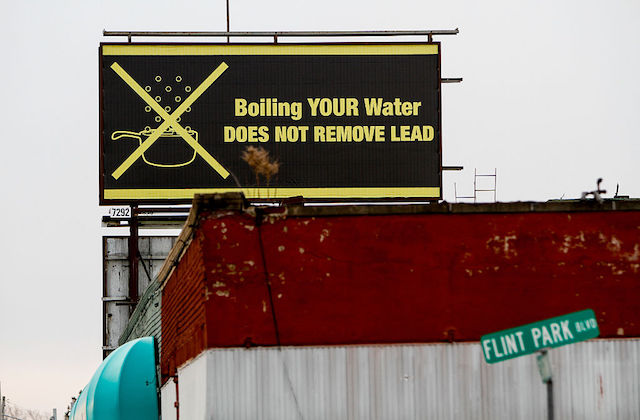On April 25, 2014, Flint, Michigan, switched its water source from the Detroit Water and Sewerage Department to the Flint River, touching off what came to be known as the Flint Water Crisis. The city’s residents—56.6 percent of whom are Black, 41.2 percent of whom live below the poverty line—quickly realized something was wrong, and testing revealed that water was corroding pipes citywide and the percentage of children with elevated blood lead levels had doubled since the previous year.
Yesterday (November 29), the city finalized a 30-year contract with the Great Lakes Water Authority (GLWA). The deal was cemented with the unanimous vote of the six-member GLWA board, which came a week after the Flint City Council voted 5-4 to approve the contract. The city’s short-term contract with GLWA was set to expire today (November 30).
Per MLive.com, the deal includes several amendments, including one that eliminates language that would make the city liable for GLWA’s legal fees in the event of a lawsuit, and others that guarantee the city a seat on the water authority’s board for at least the next four-year term, order the immediate release of $100 million that was earmarked for replacing the corroded lead service lines, extend a $750,000 grant to cover unpaid water bills, and trigger a request from Governor Rick Snyder to reconnect General Motors to the city’s water supply. The company told press that it has not decided if it will reverse its 2014 decision to leave the system, which costs the city a reported $400,000 in revenue each year.
Despite the switch, the water is not safe to consume straight from the tap. The city still advises residents to filter their drinking and cooking water before use until the lead service lines have been replaced—a task that is not expected to be completed until 2020.
